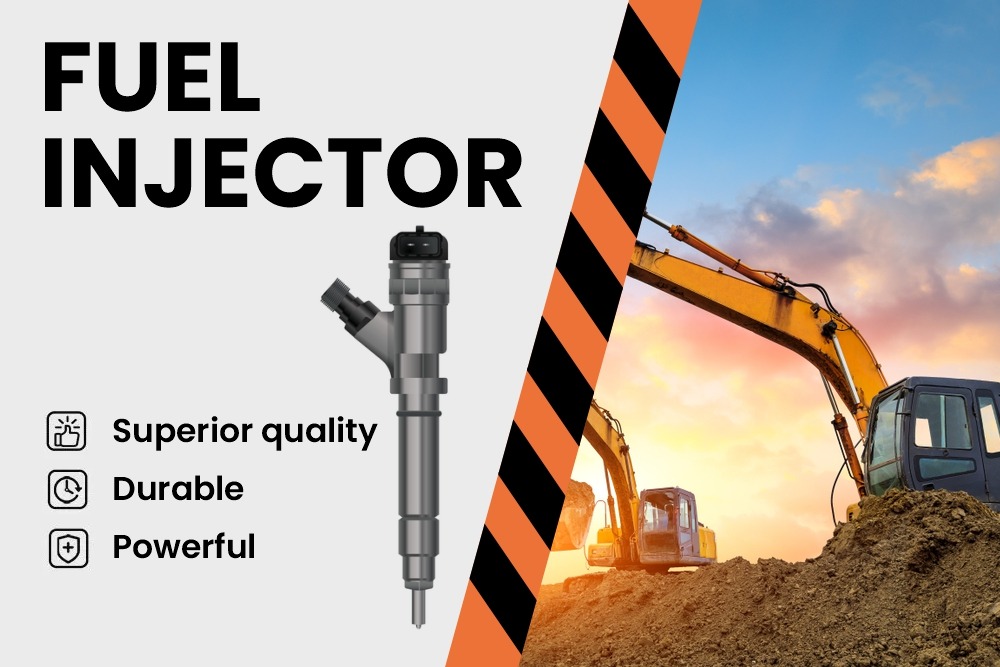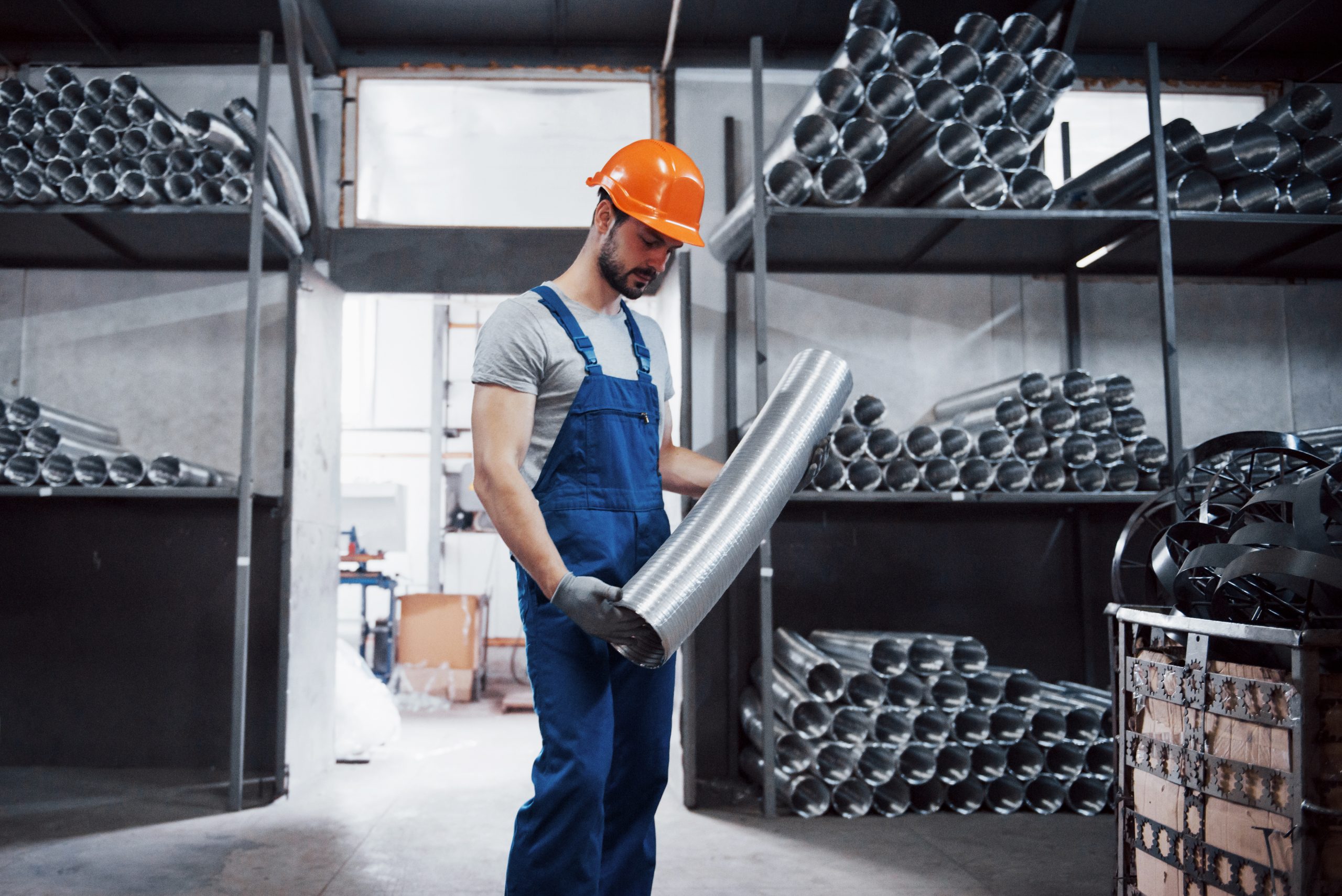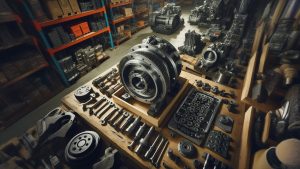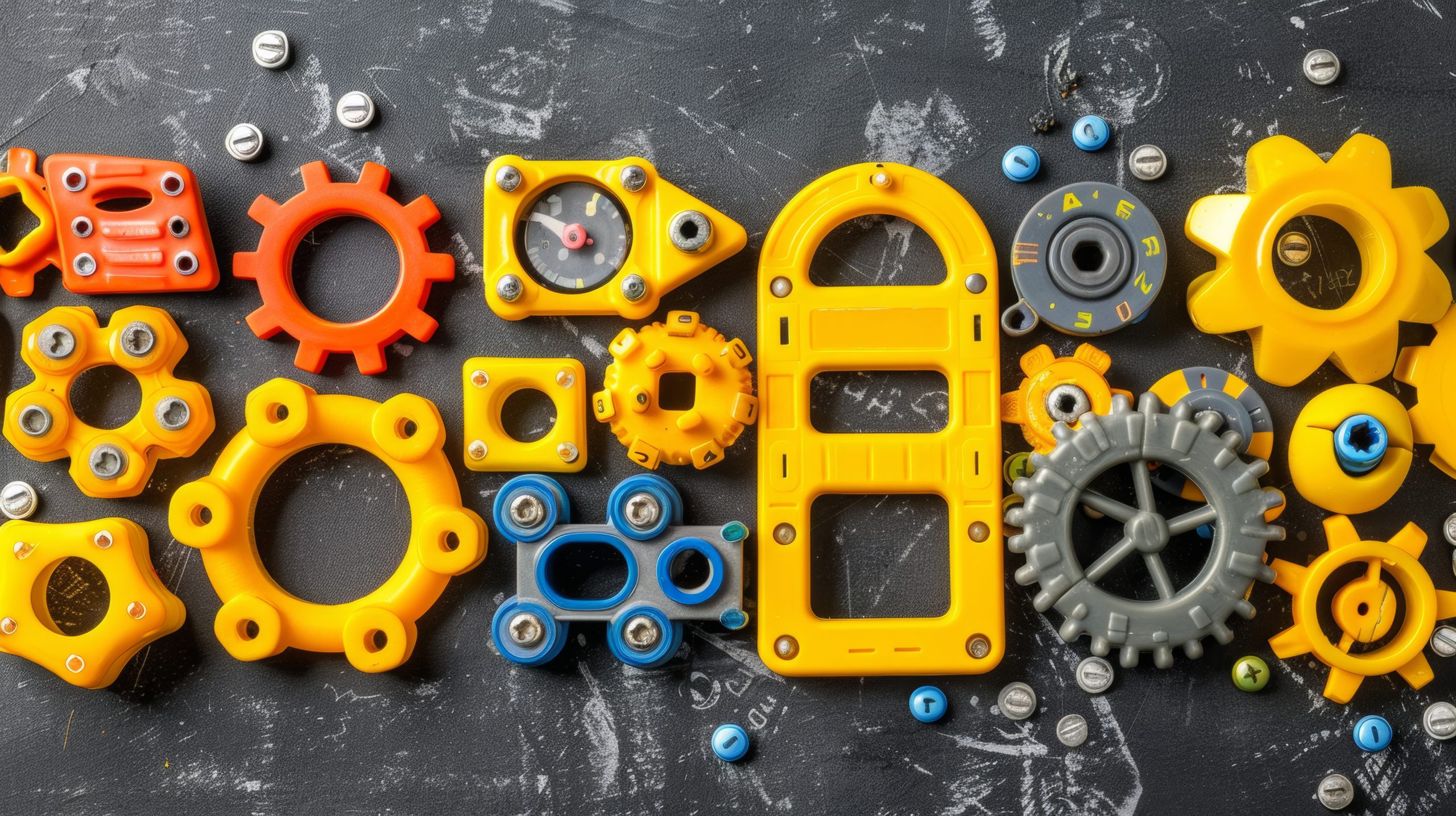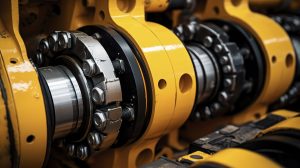Nothing is worse than construction machinery refusing to start, consuming fuel excessively, or losing power mid-project. If your equipment struggles similarly, a failing fuel injector for construction equipment could be the culprit. A weak or blocked injector can damage fuel system efficiency, squander propellant, and deteriorate heavy machinery performance.
At times, a worn fuel injector delivers an inappropriate amount of fuel for smooth engine output. But as it deteriorates further, your machinery operates poorly, necessitates more maintenance costs, and slows job progress. Anticipating when an injector replacement is needed can protect you from expensive repairs.
In this article, we’ll examine why fuel injectors are crucial, how they impact performance, and how to select the premier one. If you want enhanced fuel efficiency, increased output, and longer equipment life, keep reading! The correct injector can make all the difference.
Understanding Fuel Injector Types for Construction Equipment
To achieve efficient fuel systems and heavy machine performance, the first task is choosing the correct type of fuel injector. There are two main types of fuel injectors often used in construction equipment:
Diesel vs. Gasoline Injectors— Most construction machinery, because of the higher power and longer life of diesel engines, uses diesel injectors. The design of these injectors allows them to forcefully spray fuel, ensuring a complete burn. Gasoline injectors, for small machines, work under less pressure and burn fuel more quickly.
Direct vs. Indirect Injection—In direct injection, with fuel sprayed straight into the engine’s cylinders, fuel efficiency and power go up. This is ideal for heavy-duty machines such as bulldozers and cranes. Indirect injection puts fuel into a separate chamber before it reaches the engine. It is less powerful but quieter.
Over time, fuel injectors wear out and need injector replacements to keep machines running smoothly. We’ll discuss signs of injector replacement in the next section.
Key Factors to Consider When Buying a Fuel Injector
Compatibility with Your Equipment—Not all injectors will work on every engine. Fitting the wrong one can lead to fuel leaks, low engine power, and raise the cost of wear on parts. Always check that your equipment’s engine type and fuel system specs are compatible with the injector that you use, or rescue repairs will be far off down the line if something goes wrong.
Fuel Efficiency and Performance—A good injector is the guarantee that fuel will be burnt efficiently, waste reduced, and power improved. Fuel smoke, too much fuel consumption, and machinery running at a lower level can all contribute to a bit of the action in the field period. By selecting the right injector for your engine system, you save money on fuel, increase efficiency, and extend the service life of your equipment.
OEM vs. Aftermarket Injectors—The original manufacturer makes OEM injectors, ensuring a perfect fit and excellent performance. Aftermarket injectors are often cheaper, but there is much variation in durability and reliability on offer. While some aftermarket lines are fine, others will wear out quicker and can devastate performance, for example, on big, heavy automotive machinery.
Common Mistakes to Avoid When Buying a New Fuel Injector
Selecting the right fuel injector for construction equipment may be able to increase the fuel system’s efficiency and avoid engine problems that come from the predator: poor fuel economy.
Compatibility—Every engine has its very own set of requirements. Incorrect injectors can lead to leaks, poor fuel burn, or even unsafe idling.
Inferior Quality Injectors—While an injector with a price tag of just one-third or half as much might initially seem like a money saver, in the long run it will wear out faster and thereby hurt the machine. High-quality injectors outperform inferior ones in terms of heavy machinery performance and also have a longer lifespan.
OEM or Aftermarket—OEM injectors are the best guarantee of properly fitting products that work well. Aftermarket injectors are cheaper but often vary in quality. Choose carefully so that you don’t have to spend lots of money on injector replacement.
Regular Maintenance Habits—The best fuel injector still needs to be cared for properly. Failure to clean and replace injectors on time, coupled with fuel consumption per millilitre, can lead to reduced performance and increased costs.
Ignoring Professional Opinions—If you have uncertainties, seek advice from those who know. Making the wrong choice can waste your time and money as well as be bad for your machine’s engine.
The role of fuel injectors in maximising heavy equipment performance
Fuel injectors go beyond simply pumping muscle to an engine. They have stealth benefits that many don’t think about:
Prevents Engine Overheating—A faulty injector causes uneven burning of the fuel, making the engine work harder and therefore heating up much quicker. This is where a good injector comes into play; it stabilises temperature and prevents overheating and damage.
Minimises Vibration & Noise—Defective injectors increase vibrations & produce loud knocking sounds. A good-quality injector maintains a steady flow of fuel to prevent engine shakes and reduce noise during operation.
Battery Life—A weak injector makes the engine crank longer, which puts an extra strain on the battery. A clean injector helps the engine wake up more easily and with less stress on your battery.
Enhances Lubrication—Fuel atomisation also allows for proper lubrication of engine parts, lubricating moving parts to decrease friction and tearing of essential components.
Improves exhaust system health—Having a functioning injector reduces unburnt fuel and harmful emissions, which keeps the exhaust system healthy and air cleaner.
Conclusion
The power of your machine begins with a quality fuel injector for construction equipment. We offer a variety of injectors to increase fuel efficiency, performance, and overall preventative maintenance and minimise the chance of expensive repairs in the future. Taking the easy route won’t lead you to premium components that last long. Our injectors deliver optimal performance to keep your equipment healthy and dependable. So, don’t wait; contact Mantra ENT today.

